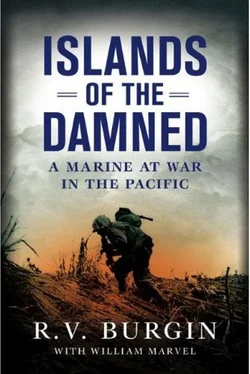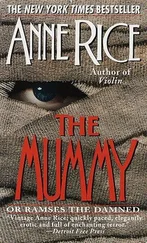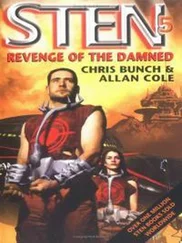My mother cooked three meals a day for nine people, and she worked in the field. The boys in the family, we did the housework just the same as the girls. My mother felt that if the girls can work in the fields, then the boys can do housework. So we all washed dishes, ironed, helped do washing—the whole nine yards.
She was a chef. She could make pies, cakes, soups. My wife, Florence, learned to make her soup with vegetables straight out of the garden. We still call it the Burgin Soup. Mother baked bread and made corn bread and biscuits. And we had milk cows, so we had milk to drink, and fresh butter.
She cooked everything on a woodstove. She washed in an old iron wash pot with a scrub board. She made most of our clothes. And she made her own soap, you know, make a pot of lye soap. She’d put up pickles and tomatoes in quart jars. She had a canner with a crank. You’d put a can in and fill it, and the canner would seal that rascal right up. We’d butcher a cow or a hog and she would can the meat.
We didn’t have an icebox. We had a food cabinet with screen wires on the front and back so the air could circulate. We had a smokehouse built of logs with wooden shingles. My dad would go down on a little branch and find a tree that was pretty straight with no knots in it. He’d cut that down with an ax and crosscut saw, and saw it up in the lengths that he wanted for shingles. He had another tool with a big handle and a kind of ax-type blade on it, real sharp. He’d split the shingles to the thickness that he wanted. Then he would shingle that smokehouse that he had built out of logs.
Whenever we butchered one of the hogs and hung the hams and shoulders and the side that you make bacon out of in the smokehouse, it was my job before I started school to keep that fire burning. But not blazing, just let the smoke out of the hickory wood. I did that practically all day long. Dad would sugar-cure the meat, and it was absolutely delicious. No doubt about it.
We didn’t have electricity and we didn’t have indoor plumbing. When I was thirteen or fourteen we dug a well in our yard. I did most of the digging. My dad would pull the dirt up with a rope and a pulley in a deal that had a steel rim about two inches wide, about twelve to fourteen inches in diameter. A gunnysack made the bucket part. That way if it broke it wouldn’t drop a metal bucket on me. At the end of the day he’d pull me out with the pulley.
We went down about thirty-two feet, and it was great water. The only trouble, if we had a drought it went dry. So we would have to haul the water from one of the branches and my mother would have to go down to the branch to wash her clothes. I would imagine it was pretty close to three-quarters of a mile.
We still didn’t have electricity when I joined the Marine Corps in 1942. Rural Electrification finally came in sometime between 1942 and when I got home from the Marines in 1945.
* * *
I didn’t want to miss a day of school. It wasn’t because I wanted to learn. I just barely passed, I made Cs. But I liked being around other folks and playing whatever they were playing at the time. I didn’t want to miss anything. I tell everybody that during my high school days I majored in PE and athletics. That’s almost true. It didn’t make any difference whether it was basketball, football, volleyball, track, or field. I was into it. I ran the low hurdles, high hurdles, pole vault, 440s. I was never a distance runner. I never ran a mile at one time in my whole life, even when I was in the Marines. But I was pretty speedy. I could run a fifty or a hundred in real good time.
I guess I liked football best. When I was a senior the team voted me captain. I still have the jacket with the star on it. I was always proud of that because the men voted me and not the coach. We weren’t a .500 team, I’ll tell you that. We won a few games, but not that many. But I enjoyed it. I would play basketball at night, but the bus wouldn’t stay for the basketball players. After the ball game was over I’d walk eight miles home.
During Depression days there wasn’t any money. There was a Works Progress Administration program in the schools, and they gave me the job of cleaning the gym. It paid three dollars a month. In the Depression a silver dollar—and silver dollars were plentiful in those days—looked as big as a wagon wheel. It was really something to get a silver dollar. Several dollars, man, that was something. That would carry me for a long time.
In the spring I picked berries and took them to town to sell for a dime a pail. Wild blackberries and dewberries. If we needed notebook paper or school supplies, mother would give me one or two dozen eggs and I’d take them in and sell them to merchants for a dime a dozen. You could take a dime and buy pretty much what you needed.
When I was about sixteen, Ed Hull, a neighbor, hired me for a couple or three days in the spring to chop cotton. There’s a lot of grass and weeds that the plow won’t get, and so you come in and chop cotton, that’s what they call it. Thin down the stalks, cut the weeds out of it. I would be out there at the break of day and stay until it was dark. He fed me lunch and paid me seventy-five cents for the day. The next year he raised me to a dollar a day.
But farming wasn’t one of my things. I’d seen my dad work hard only to see the crop fail. I thought, There’s a better way to make a living than on the farm. I graduated from high school in May 1941, and as quick as I graduated I went to Dallas. My sister Ila was there and I lived with her until I found a place of my own.
My first job was in a warehouse for thirty cents an hour. I’ll never forget that summer. We were unloading boxcars of candy bars. There were Snickers, Milky Ways, Baby Ruths, Butterfingers, all in eighty-pound boxes stacked chest high. The temperature was 110 to 115 a lot of days. The candy didn’t melt, but we melted. We’d pull those boxes out of there and put them on a two-wheeler and roll them out and stack them in the warehouse—eighty pounds of those rascals. They were heavy. But I was young and I had played football, so it didn’t bother me.
December 7, 1941, was a Sunday. I was at home listening to the radio when the news came over that the Japs had bombed Pearl Harbor. I don’t think I really grasped the impact of what was happening. I knew a war had been brewing. Lots of folks had been gathering up iron and steel and selling it for about half a cent a pound. We knew where it was going—to Japan to make battleships. Even in high school we had joked about those guys shooting that steel back at us. But I didn’t realize how Pearl Harbor would change the world, or how long we would be in it. Or how long I would be in it.
I went on working in the warehouse, but by February 1942 I was looking for another job. I read in the paper that a stationery company out of Columbus, Ohio, wanted a salesman to travel the country. I thought I’d go down and interview just to see what would happen. They hired me and put me on a sales crew.
We were driving brand-new 1941 Studebakers. The company provided two of them. Claude Malone was driving one of them. He was from Tennessee and I was with his crew. Then Bill Duebner, the owner, and his wife and another crew.
I loved it because I was getting an education that this old farm boy never knew. I had been to Houston and to San Antonio a few times and I’d been to Dallas half a dozen times. That was about as far off as I’d ever gone. I thought working for that stationery company was worth about two years of college, really, just being out in the world.
We started up through Oklahoma, went through Kansas, Nebraska, and Iowa, the Dakotas, Montana, Idaho, Washington State, Oregon, California. Then we came back through.
Читать дальше











